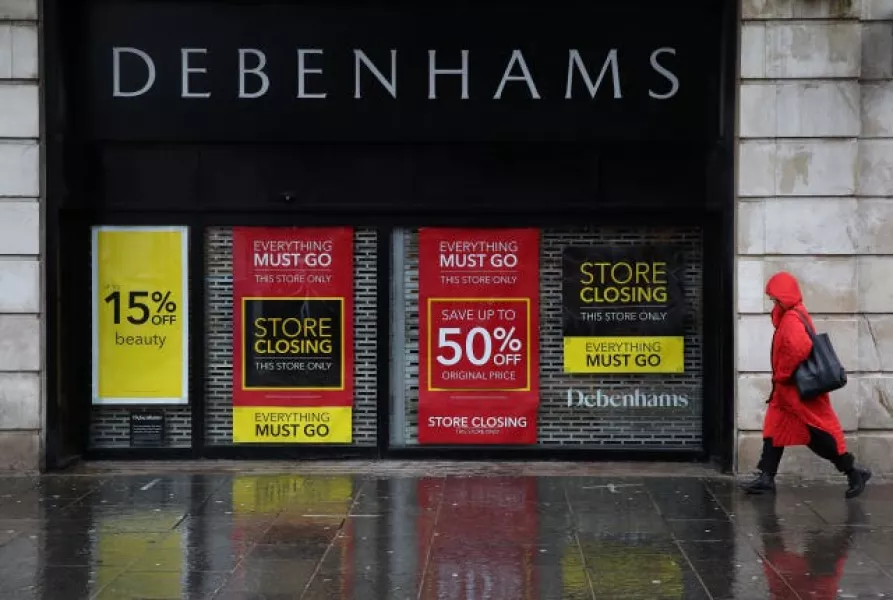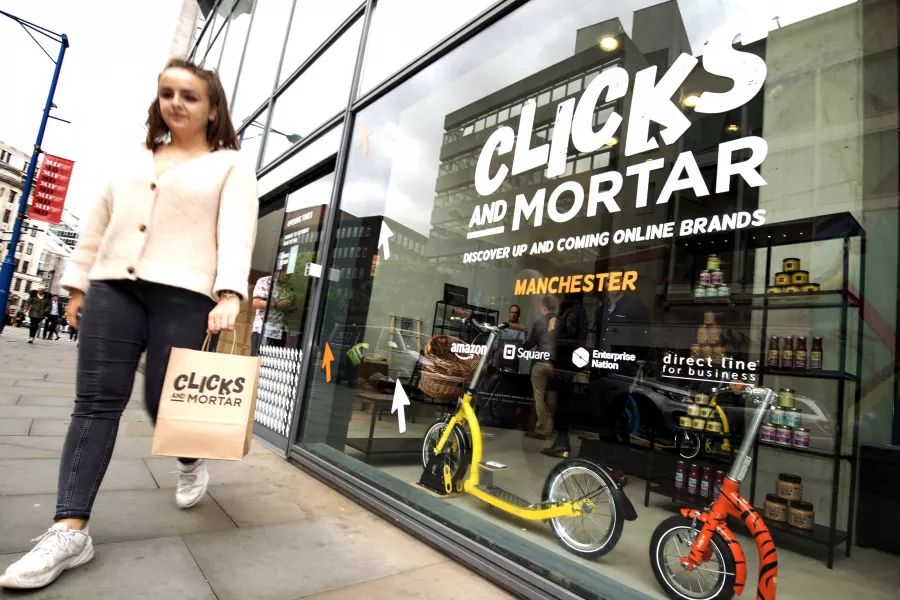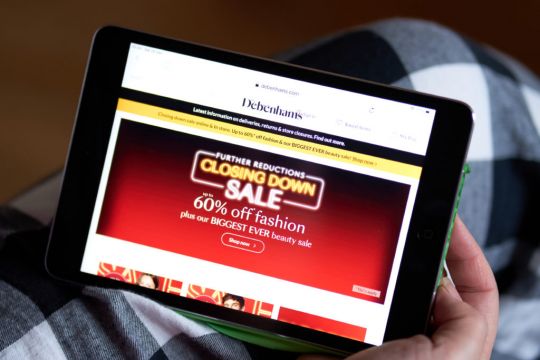Two of the UK’s largest online retailers, Boohoo and Asos, have moved to buy brands from collapsed high street giants in deals underlining how the pandemic has accelerated dramatic shifts in the retail sector.
Boohoo has secured a £55 million (€62 million) deal to buy the brands and website of Debenhams, confirming the demise of the 242-year-old retailer’s history on the high street.
The department store firm is currently winding down operations at its 118 stores, which are expected to shut for good by March.
In a separate move, Asos told investors that it is in exclusive talks to buy the Topshop, Topman, Miss Selfridge and HIIT brands and online businesses from administrators for Sir Philip Green’s Arcadia empire.
The deal would result in the closure of all stores under these brands, with thousands of jobs expected to be impacted.
Both deals paint a dismal picture for the future of the UK high street but suggests many troubled companies could face rosier futures online.
Here we answer key questions over what this all means.
Why do online-only retailers want to buy high street names?
Today’s two moves come amid a period of strong activity by online firms looking to snap up troubled high street brands on the cheap.
Boohoo has been particularly aggressive in this regard, buying high street brands Karen Millen, Oasis and Warehouse in the past two years to take them online-only and shut stores.

Guy Elliott at Publicis Sapient said the online firm’s deal for Debenhams is similar, in that it will open up Boohoo to a different demographic to its core teenage and millennial customer base.
“Debenhams is a well-known brand, the website has a large volume of traffic and an older demographic than Boohoo’s current territory,” he said.
“It is also likely they are looking to capitalise on some of the core territories in which Debenhams is strong, such as beauty or lingerie, rather than its current broad-brush department store history.”
Buying high street retailers with strong brands provides the likes of Asos and Boohoo with good foundations to move into slightly different areas of the market.
Topshop and other Arcadia brands have also been targeted by high street retailers such as Next, but unprofitable rental agreements have proved an obstacle to securing good value deals for potential suitors, meaning administrators may have found online-only sales to be more lucrative.
Does this mean the high street is dead?
The pandemic has sparked a raft of administrations and restructurings among high street retailers, causing the loss of thousands of jobs.
The high street had already been in turmoil prior to Covid-19, but retail analyst Richard Hyman said that it still has a future, although it will look “quite different”.
“The high street isn’t dead but it is currently sleeping,” he said.
“When it is allowed to wake up properly I think you will see a huge amount of the population go out shopping because it is something people miss.
“But obviously it will be smaller and we continue to see a lot of changes as stores react to what customers want and expect from the experience.
“These companies, like Topman and Debenhams, were always going to fade from the high street but there are plenty like Primark who have been hit by the pandemic but should rebound quickly when they reopen”.
Analysts have also stressed that a slump in retail property valuations following the pandemic could provide an opportunity for innovation.
Leisure firms had seen particular growth prior to the pandemic, with large units previously taken by major retailers or department stores becoming trampoline parks and mixed-use venues.
How likely are brands to survive if they move online-only?
The shift from some high street stalwarts to become online-only operations has largely been a recent phenomenon.
However, Littlewoods was one of the first brands to move completely online after the brand was sold to The Very Group, under its previous name Shop Direct.
The group has continued to operate successfully through Littlewoods.com although the brand has been largely dwarfed by its flagship Very brand.
Fortunately for Boohoo, Debenhams will have already have a larger online business when the change in ownership is completed.
However, some retail analysts have said it could face a challenge keep some key brand partners on board as part of the change in ownership.
Greg Lawless, retail analyst at Shore Capital, said: “The big question in beauty is whether the big beauty brands – Clinique and Chanel – will remain with Boohoo longer term.
“The Debenhams number one position in premium beauty was predicated on counter sales, which will not form part of this acquisition.”
It remains to be seen how the acquisition will impact Debenhams relationship with their vast number of brand partners.
Will online-only retailers open bricks and mortar stores?
Over the past decade, many high street firms have committed significant energy to developing an online presence, but now some online retailers have made the reverse mood.
In 2019, Amazon launched its first UK pop-up stores and planned to open more in cities across the UK before plans were impacted by the pandemic.

The group also purchased the Whole Foods grocery chain, although this has proved a challenge, with Whole Foods UK posting widening losses last year.
Other online firms such as The Hut Group, Glossier and Gymshark have also focused on pop-up stores and showrooms to use physical high street settings to help them show new customers their online offering.
Richard Hyman said customers should expect more online firms to make this move, with customers keen for physical experiences.
“I am confident you see more online retailers looking to open physical spaces because it is a wholly different experience,” he said.
“Online is not the silver bullet and we’ve seen customers queue to get their hands on products which were previously only available online.”







